The disruptions in learning caused by the COVID-19 pandemic have given me time to reflect on our system of schooling and what does and does not work for my students and families.
I have concluded that our education system has all too often failed to meet our students and families where they are. We must seek to co-create an alternative that liberates our students to get the best out of their public education.
Right now, we have a major problem in Aurora Public Schools (and in other districts, I am sure), with parents being completely disengaged from their children’s schools and learning. I believe that to address this, it is past time to begin providing these parents, as well as students, with a direct and immediate role in the co-creation of what is taught in schools and how it is taught.
By co-creation I mean that our schools and districts must stop ignoring their students and parents, or stop going to them after decisions have been made on their behalf and seeking to buy them in.
The typical response is to blame parents for their disengagement, but people working multiple jobs and with many worries gnawing at them may not have the time or inclination to fight against enormous bureaucracies that seem intent on locking them out. No, the blame lies with schools and districts, and this must change. Schools and districts have to put real effort into meeting those they serve in ways that are relevant and accessible.
Students are also disregarded when it comes to curriculum and instruction. It is high time we include them in the design of curriculum and instruction, especially our high school students. They are the customers, the consumers of education. We should trust our students to want the best for their own future and our parents to know what’s best for their students.
Schools and districts should seek input from them on what they feel they need to learn, what their current education is lacking, and how they can learn best. Might we not want to ask them what they feel they need to learn, and how they would learn best?
When I talk about education liberation, I mean that it is long past time to focus so single-mindedly on sending all students to four-year colleges. As college becomes increasingly expensive, and as many traditional majors become less relevant, we do some if not most of our students a disservice by pushing them toward the four-year option.
Yes, there are good careers to be had with a four-year degree, or even an advanced degree. However, what is too often overlooked is that there are great careers available to people with two-year degrees, with certificates, and even for those who have been self-taught. I believe this will become even more evident in the years to come as our society and economy changes.
As a Career and Technical Education (CTE) high school teacher, I can clearly see how education co-creation and education liberation tie together. That’s because I have regular conversations with my students and their parents. What I hear often from students is this:
“Miss, I am worried about going so far in debt so I can attend college and learn things that might be interesting but won’t necessarily help me get a job. I don’t want to graduate with such a burden of debt that I will never be able to save any money.”
And here is what I hear from parents:
“My son finds most of school oppressive and boring. The only classes that engage him are the CTE classes, where he gets to work with his hands, or learn computer programming and robotics. We have no money to send him to a four-year college, and he is more interested in some of the careers he has been exploring in your classes. What can we do to help him?”
If we listen to parents and students, we will help liberate them by beginning to understand that the education they want is far different than what is being delivered today.
We can make these changes. But to do so, we have to stop prioritizing the interests of adults who work within the system and really listen to the kids and their parents that the system is meant to serve.
The answers they offer are right there in front of us.




